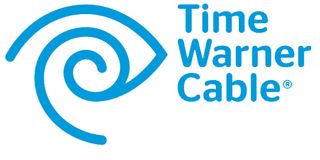Wait, How Much Is Time Warner Selling For?

Update: News just broke that the deal is going through and that Time Warner Cable will be absorbed by Charter Communications, Inc. for $195.7 per share, which actually ends up valuing out to $78.7 billion. That's even higher than initially anticipated.
In a rather expected development, it appears that Time Warner Cable will be absorbed by Charter Communications Inc. However, the details and amounts involved in the deal are raising some eyebrows. While regulatory red tape recently forced Comcast to leave an astounding $45 billion acquisition deal for Warner at the altar last month, Charter seemed the next logical suitor. Indeed, that is what seems about to occur, for the not-so-low price of $55.1 billion!
Although the price jump is a bit perplexing, it is being reported that Charter Communications is closing a deal that will see the fourth-largest cable company in the U.S. climb a few rungs up the ladder to absorb the second-largest company, quadrupling its customer base. It will also expand Charter’s reach to mega-markets like New York, Los Angeles and Dallas. Astoundingly enough, the rebound deal for the abandoned Time Warner actually dwarfs the already-astronomical deal that inspired cries of monopolistic machinations with Comcast by nearly $10 billion.
Apparently, the increased amount was due in some part to the bids of a French billionaire named Patrick Drahi, whose company, Altice SA, like a sniper ebay bidder, had been making competing offers from the sidelines. Additionally, the shockingly up-negotiated amount should immediately eliminate another potential Time Warner shopper in the Luxemborg-based Altice, who was looking to put down $35 billion (32 billion euros.)
It was generally expected that Charter Communications Inc., who attempted an acquisition of Time Warner Cable in late 2013 with a bloated $61.3 billion deal, would make another attempt. However, the nixed Comcast deal, while costing less, would have been a ticket to the top of the multimedia mountain. Besides gaining the nation’s largest customer base, it would have created a more-lucrative Internet empire controlling 57% of the broadband service in the U.S. Thus, the deal caught the attention of the FCC and several members of the legislature who saw a monopoly in the making.
The Charter Communications deal, while putting significantly more money on the table, will essentially create more potent competition for the telecommunication kings at Comcast. Now, the combined forces of Charter and Time Warner (whatever they will call themselves) will collectively create a customer base of approximately 17 million customers, more effectively matching the 22 million currently enjoyed by Comcast, alone. Besides the growth in customer base, the merger will grant Charter/Time Warner more leverage in negotiations with television networks; something that certain customers may appreciate during those inevitable periods in which cable networks (AMC, especially) get aggressive, threatening to pull from your provider.
Consequently, there may be a the illusion of irony or outright politics at play, since the $55.1 billion deal is expected to move through, unmolested by federal intervention, while the lesser $45 billion Comcast deal fell through after it was mired in potential regulation and bad publicity. However, the saving grace for this particular merger could be the idea that it would create a stronger second-place competitor out of the Charter/Time Warner hybrid. It could be perceived as a more healthy set of circumstances for consumers, who may reap the benefits of their inevitable battles with the colossal Comcast.
CINEMABLEND NEWSLETTER
Your Daily Blend of Entertainment News
At the moment, the deal looks all but set as Charter CEO Tom Rutledge reportedly announced the imminent nature of the acquisition in a conference call. Barring any unforeseen federal recalcitrance the final i’s should be dotted on the deal by the end of 2015.
Most Popular






